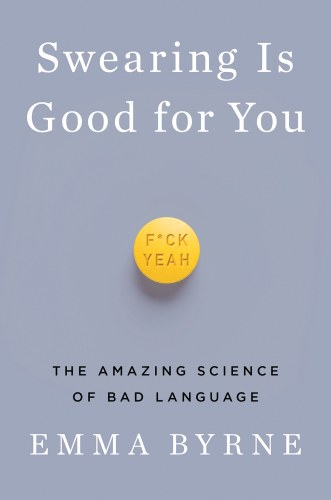
Swearing Is Good for You
The Amazing Science of Bad Language
کتاب های مرتبط
- اطلاعات
- نقد و بررسی
- دیدگاه کاربران
نقد و بررسی

October 30, 2017
Science writer Byrne aims to give the practice of swearing “the respect it fucking deserves” in this shallow study, but doesn’t quite hit the mark. Attempting to show how swearing has evolved from a linguistic “shortcut” into a “powerful instrument” with physiological benefits, Byrne describes a number of experiments in neuroscience, psychology, and animal behaviorism. In one such experiment, volunteers were asked to hold their hands in buckets of ice water and researchers found that swearing enabled the participants to endure the pain for a longer period of time. Byrne suggests that swearing can help lessen both physical and social suffering, and that “stronger swear words are stronger painkillers.” She also begins to discuss the topics of women’s use of foul-language and swearing in the workplace, but fizzles out. (“Swearing really can break down barriers,” she writes. “But of course, even among workmates, swearing and abuse aren’t always taken well.”) Readers probably won’t be surprised to find out that British women are as likely to swear as British men, that women’s use of fuck has increased fivefold since 1990, and that swearing helps people “communicate emotions.” Given the book’s subtitle, the science here underwhelms and the flippant way that Byrne handles it may have readers employing their own choice vocabularies. Agent: Carrie Plitt, Felicity Bryan Associates (U.K.).

November 15, 2017
In this engaging and often irreverent work, scientist and freelance writer Byrne explores swearing and the many ways that it is actually good for us. She describes why and how we swear and presents an interdisciplinary view of swearing using a variety of lenses: historical, psychological, physical, anthropological, social, and linguistic. This book includes fascinating details on the effects of swearing on pain tolerance, profanity in the workplace and by women, chimpanzees who were taught to swear, and cussing in a second language. (Byrne also thoroughly explains why her chapter on Tourette's syndrome does not actually belong in this book.) Each chapter includes historical context on the topic, up-to-date research findings, and illuminating case studies, all focused on the many benefits of using foul language. The chapter on the workplace shows that swearing can encourage collaboration and unity. Byrne's style is conversational, entertaining, and appropriate for the general public. However, since the work is well researched and documented, it will also be valuable to scholars. VERDICT A thoroughly enjoyable option for readers from a variety of disciplines, including neuroscience and communications.--Theresa Muraski, Univ. of Wisconsin-Stevens Point Lib.
Copyright 2017 Library Journal, LLC Used with permission.

October 1, 2017
In defense of swearing.Written in an engaging and conversational style, BBC journalist Byrne's first book touches many bases when it comes to her approach to swearing: sociology, history, psychology, neuroscience, anthropology, and more. Her quest is fairly ambitious: "Why we do it, how we do it and what it tells us about ourselves." Swearing, she posits, is a "complex social signal that is laden with emotional and cultural significance." Though the author is "not necessarily encouraging people to swear more...I do hope you might give it the respect it fucking deserves." The book is divided into seven parts covering neuroscience, pain, a special look at Tourette's syndrome (though she admits that most afflicted with the disease don't swear), the workplace, primates, gender, and swearing in other languages. Years of medical research have demonstrated that many parts of the brain are involved in swearing, "either collaborating to help you produce swearing or working to suppress it when it isn't wanted." As far as the brain is concerned, swearing is a "sophisticated team effort." Psychological research has definitively found that "swearing is a really important part of dealing with the shitty consequences of pain and illness." Byrne's exploration of the workplace is particularly illuminating; apparently, "the team that swears together stays together." A group of chimpanzees who learned to sign also "learned to swear, as soon as they learned what a taboo was." In 1673, Richard Allestree argued in The Ladies' Calling that women who swear undergo a "metamorphosis" that makes then "affectedly masculine." We've certainly come a long way, and current thinking, Byrne notes, argues that to be equal, we need to be equal in the way we express ourselves, dammit!Although quite profane at times--understandably so--Byrne provides a refreshing, entertaining, instructive examination of a "surprisingly flexible part of a linguistic repertoire."
COPYRIGHT(2017) Kirkus Reviews, ALL RIGHTS RESERVED.

























دیدگاه کاربران